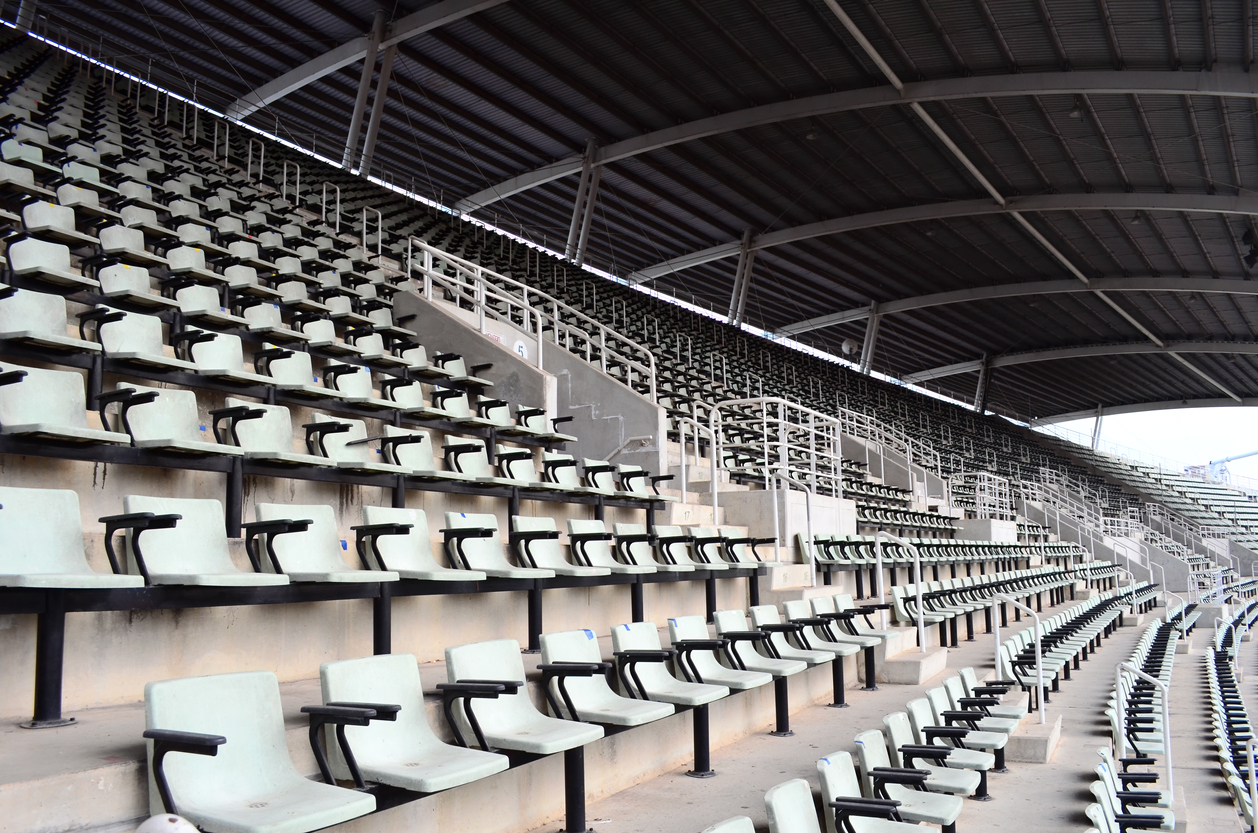Large venues such as sports arenas, concert halls, and stadiums must meet the needs of ticket holders who expect internet access during events. Here’s how to make sure your facility is up to the digital capacity.
During football games, fans want the ability to search for player statistics. During concerts, they want to record and share videos to social media. Whatever the event might be, if it is taking place inside a large venue, ticket holders want the ability to call home during breaks, text their friends to find out where they are seated, post on social media, and use websites like Google to search for information.
None of this is possible without a telecommunication infrastructure built to handle your sprawling venue and its crowds with an even larger appetite for access to data and Wi-Fi.
Staying connected at a large venue for the duration of an event is no longer considered a luxury —it is something fans expect. Many venues have responded by making telecommunication infrastructure a key design element. One example is the upgraded Minnesota Vikings stadium that opened in 2015, which was built for football fans and their devices. The Wi-Fi capacity was designed to make it possible for up to 65,000 people to use their smartphones at the same time.
Other large venues — even those that draw crowds in the hundreds rather than in thousands — should follow the Vikings’ lead when considering what their fans expect. Here are six factors to consider when planning the telecommunication infrastructure for high-volume arenas.
1. Capacity for large files
Attending an event is an experience, and paying attendees want to share that experience. This means taking photos and videos that will be shared to Instagram, Facebook, Snapchat, Twitter, and texted to friends who are not lucky enough to be present.
Today’s smartphones feature impressive cameras that take high-quality images. These devices use a lot of storage and data due to large file sizes. Telecommunication infrastructure must accommodate the capacity of hundreds and thousands of devices sharing these large files.
2. Reliability for the duration of a live event
Fans want to stay connected inside a stadium from the beginning to the end of the event. They also want to be able to access the internet and make calls from their devices from anywhere inside the venue. The key factor to address here is reliability, which means no dead zones and no interruptions in service throughout the event.
3. Bandwidth for big crowds
As demonstrated in the earlier example, stadiums must plan their network solutions with large crowds in mind. Even if the maximum capacity of a venue is not reached, infrastructure must be in place with the assumption that the biggest possible crowd will be present every single night. This means installing network ports, access points and internet bandwidth to service the maximum capacity of the venue. A crowded event like a championship game or big-name concert should not result in slower internet.
4. Technology for outdoor venues
Outdoor stadiums and combined indoor/outdoor venues must account for the unique environmental factors that contribute to the overall guest experience with technology. Whether it is a scorching outdoor stadium in Las Vegas or a freezing outdoor arena in Boston, the temperature, humidity, precipitation, and even the wind speed can — but should not — influence crowd access to technology and communication unless your system was built to account for them.
5. Connectivity for in-stadium apps
Some venues may not see the value in boosting connectivity in an event space. After all, won’t this encourage ticketholders to spend too much time scrolling their phones and not enough time engaging with the event? Those who adopt this mindset are missing out on a key factor that makes the case for best-in-class telecommunications: Data and internet can facilitate in-stadium apps and push notifications that make it possible for fans to upgrade seats, purchase refreshments, and find nearby services and amenities that result in a better overall event experience for them and higher revenue for the venue.
6. Voice quality that facilitates communication
Smartphones perform so many of the same functions as computers that it is easy to overlook their essential intent: voice communication. Event space operators should plan on their guests utilizing this, whether it be to find friends who are also in attendance or to communicate with family members at home. Voice quality is a key consideration. This relies on voice data and can be influenced by the size of the crowd as well as external factors such as noise and wind. Eventgoers expect a consistent signal and high voice quality as they will likely only use cell phones for important calls during events.
Addressing these concerns when planning stadium infrastructure and technology is not just a way to offer a helpful service to event guests; it is a way to boost ticket sales and enable commerce at the event. Offering and advertising modern technology will bring social-media-reliant consumers off their couches and into your venue while offering them a powerful tool to transact, receive urgent information, and stay connected.
Venue operators with questions about designing and implementing the technology that makes this all possible can rely on Unisol International for the products and know-how associated with project deployment. Contact Unisol International for more information about products that can be shipped worldwide and customized for stadium solutions.
